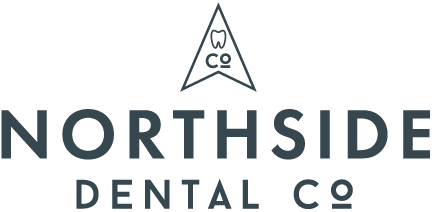Every day, we put our teeth and gums through the ringer with acidic drinks, sugary snacks, and general wear-and-tear. All of those different sources expose us to bacteria that can lead to plaque buildup and inflamed gums.
Nearly half of Americans aged 30 and older have some form of gum disease. While we put a lot of emphasis on our pearly whites, healthy gums are the foundation for a healthy smile.
With laser bacterial reduction, dental hygiene professionals can quickly and painlessly improve gum health by targeting and eliminating bacteria without harming healthy gum tissue or causing discomfort.
Let’s take a closer look at this innovative treatment.
What Is A Laser For Dental Hygiene?
A laser for dental hygiene is a specialized tool that harnesses the power of laser technology to perform bacterial decontamination within your gums. Specifically designed for dental applications, these lasers emit focused beams of light at specific wavelengths, allowing dental professionals to perform precise and minimally invasive procedures.
Diode laser periodontal treatments rely on a special laser for dental hygiene that targets and destroys bacteria that cause periodontal disease. As an added benefit, the laser energy also stimulates your gingival tissue to regenerate, repairing any damage caused by infection.
While manual removal of plaque and tartar buildup remains essential, a dental hygiene laser helps decontaminate your gums and eliminate bacteria that traditional cleaning instruments can’t reach. That’s why laser treatments are often performed in addition to regular cleanings, not in place of them.
Benefits of Dental Hygiene Lasers
- Thorough: Laser treatments allow hygienists to reduce plaque in hard-to-reach places below the gum line and between teeth. The laser’s energy penetrates deeper to sterilize gum pockets and minimizes the risk of developing periodontal disease in the future.
- Non-invasive: Since laser energy passes through soft tissues without causing any damage (or pain), the patient experiences minimal discomfort during treatment. No scraping, drilling, or incising, just a little heat.
- Fast: Dental hygiene laser treatments are a quick addition to your general dentistry appointment. Not only is the treatment itself fast, but the healing process is also much faster since there are no open wounds.
- Safe: Diode laser periodontal treatment is safe, even more so than using traditional dental tools, because dental lasers give dentists and hygienists a higher level of precision.
Laser bacterial reduction dental hygiene treatments are becoming more available in dental offices across the country, but not all dental practices use laser technology. Ask about the availability of laser treatments with your dental care provider.
Is Laser Bacterial Reduction Worth It?
The cost of laser bacterial reduction for dental hygiene depends on various factors, including your dentist, the condition of your oral health, and insurance coverage. Speak with your provider about coverage. For those without insurance, you can often opt for a payment plan or join a dental savings plan.
By thoroughly eliminating bacteria and stimulating the growth of healthy gum tissue, lasers can reduce the need for recurring deep cleanings, gum surgery, tooth extractions, and other invasive treatments later on. The costs of treatment for advanced gum disease tomorrow can be much higher than the cost of dental laser therapy today.
Ask About Dental Hygiene Lasers at Northside Dental Co.
With the evolution of modern dental technology, it’s never been easier to get the smile you’ve always wanted. Innovations like the diode laser and 3D imaging technology allow dentists to capture a comprehensive picture of your oral health and make procedures safer and more comfortable for patients.
Whether you need cosmetic enhancements or restorative treatments, our team at Northside Dental Co. can provide the treatment you need. Interested in laser bacterial reduction? Our dental hygiene professionals are trained to perform diode laser periodontal treatment and can answer any questions you have about it.
Schedule a consultation today to learn more about laser bacterial reduction and how it can improve your oral health.

